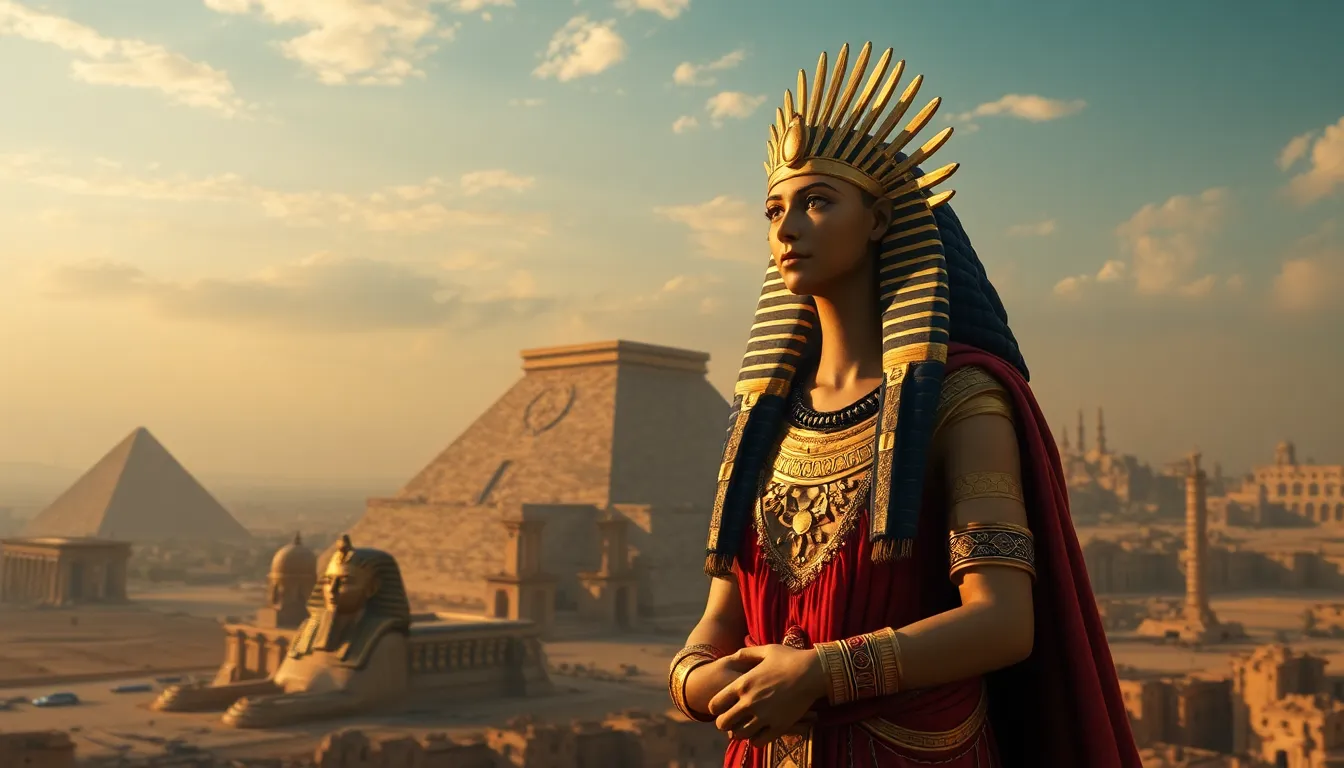The Mysteries of Isis: Secrets of the Divine Mother
I. Introduction to Isis: The Divine Mother
Isis, one of the most revered deities in ancient Egyptian mythology, embodies the archetype of the Divine Mother. She is celebrated for her unwavering devotion, nurturing qualities, and powerful magic. As a central figure in the Egyptian pantheon, Isis represents various aspects of life, including fertility, motherhood, and the protective nature of love.
The importance of Isis transcends mere mythology; she was integral to the spiritual and daily lives of ancient Egyptians. Her worship provided comfort and hope, especially during times of hardship. This article aims to explore the mysteries surrounding Isis, delving into her historical significance, symbolism, myths, rituals, and her enduring legacy in contemporary spirituality.
II. Historical Context of Isis Worship
The worship of Isis has deep roots in ancient Egypt, dating back to the Old Kingdom (c. 2686–2181 BCE). Initially, she was a local goddess of fertility and motherhood, but over centuries, her influence grew, and she became a central figure in the Egyptian pantheon.
Key historical periods marked the evolution of her worship:
- Old Kingdom: Isis was primarily associated with the home and family.
- Middle Kingdom: Her role expanded as she became linked with the afterlife and resurrection.
- New Kingdom: Isis was worshipped widely, with temples dedicated to her across Egypt and beyond.
The geographic spread of Isis worship extended far beyond Egypt, influencing cultures in the Mediterranean and beyond. The Romans, for example, integrated her into their pantheon, leading to her veneration in various forms throughout the empire.
III. The Symbolism of Isis
Isis is often depicted in art and sculpture with distinct iconography that emphasizes her divine qualities. Common representations include:
- Throne Hieroglyph: Often shown with a throne on her head, symbolizing her role as a queen and mother.
- Wings: Depicted with outstretched wings, representing her protective nature.
- Scorpion and Ankh: Associated with healing and life.
The symbols associated with Isis carry profound meanings:
- The Ankh: Represents eternal life.
- Lotus Flower: Symbolizes rebirth and purity.
- Cow Horns: Reflect fertility and nourishment.
As a protector and nurturer, Isis was not only a goddess of motherhood but also a powerful figure who assisted the dead in their journey to the afterlife. Her role as a comforting presence made her a beloved deity among the ancient Egyptians.
IV. Myths and Legends of Isis
The mythology surrounding Isis is rich and complex, with her most famous narrative being the Osiris myth. This myth tells the story of her husband Osiris, who was murdered by his brother Set. Driven by grief, Isis embarked on a quest to find Osiris’s body and resurrect him, which highlights key themes in her mythology:
- Resurrection: Isis’s ability to bring Osiris back to life symbolizes hope and renewal.
- Motherhood: Her role as the mother of Horus, the avenger of Osiris, underscores her nurturing qualities.
- Magic: Isis is often depicted as a powerful sorceress who uses her magical abilities to protect her loved ones.
The influence of these myths permeated ancient Egyptian culture, shaping their understanding of life, death, and the afterlife. Isis became synonymous with the ideals of love, loyalty, and resilience.
V. The Cult of Isis: Rituals and Practices
The worship of Isis involved various rituals and ceremonies that reflected her significance in the lives of her followers. Key aspects of the cult of Isis included:
- Ritual Offerings: Devotees would present offerings of food, flowers, and incense at her altars.
- Temples: Grand temples dedicated to Isis were built, serving as centers of worship and community.
- Priesthood: A dedicated class of priests performed rituals and maintained the temples, ensuring that Isis was properly honored.
Festivals celebrating Isis were vibrant and widely attended. The most notable was the Isia, a festival that included processions, music, and theatrical reenactments of the Osiris myth, fostering a sense of community and shared spirituality among worshippers.
VI. Isis in Contemporary Spirituality
In recent years, there has been a revival of interest in Isis within modern pagan and spiritual practices. Many contemporary practitioners view Isis as a symbol of feminine power and empowerment, embodying strength, wisdom, and nurturing qualities.
Isis’s influence extends into various forms of art, literature, and popular culture today:
- Literature: She appears in novels, poetry, and scholarly works exploring ancient mythology and spirituality.
- Art: Modern artists draw inspiration from Isis, depicting her as a symbol of empowerment and resilience.
- Popular Culture: References to Isis can be found in films, music, and television, showcasing her enduring legacy.
VII. The Mystical Teachings of Isis
The mysteries of Isis encompass esoteric and mystical teachings that have intrigued scholars and spiritual seekers alike. Ancient texts attributed to her provide insights into her wisdom and guidance:
- Healing Practices: Isis was revered for her knowledge of herbs and healing, offering guidance on physical and spiritual well-being.
- Rituals for Protection: Instructions for rituals to invoke her protection and blessings were passed down through generations.
- Philosophical Insights: Her teachings often emphasized the interconnectedness of life, death, and rebirth.
These teachings can be applied to modern spiritual practices, encouraging individuals to seek personal empowerment, healing, and a deeper connection to their own spiritual journeys.
VIII. Conclusion: The Enduring Legacy of Isis
In summary, Isis remains a powerful symbol of the Divine Mother, embodying love, resilience, and transformation. Her significance in ancient Egyptian mythology and culture is profound, impacting spiritual practices throughout history.
The mysteries of Isis continue to resonate in contemporary spirituality, reminding us of the importance of nurturing, protective energies in our lives. As we explore her legacy, we honor the timeless teachings of Isis, a beacon of feminine strength and wisdom.




